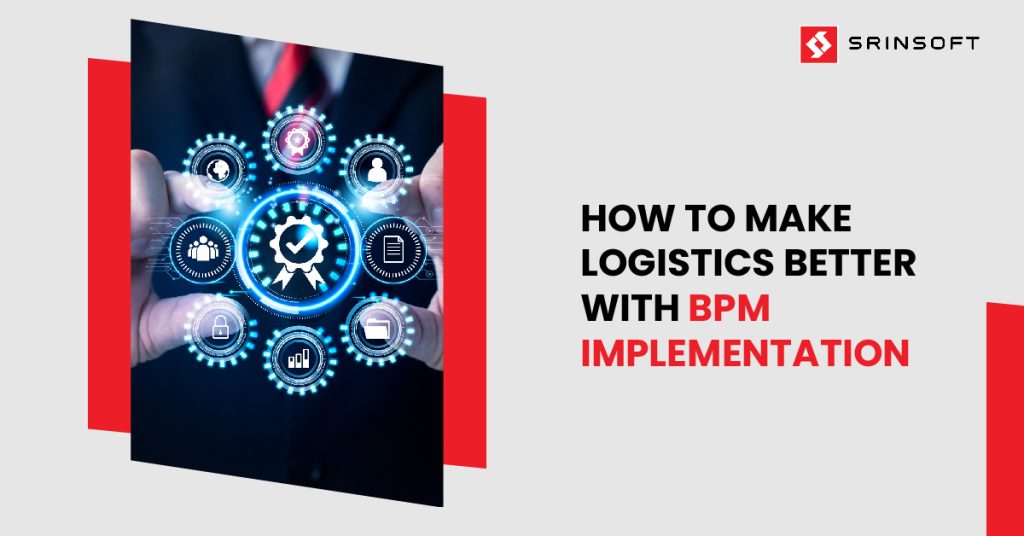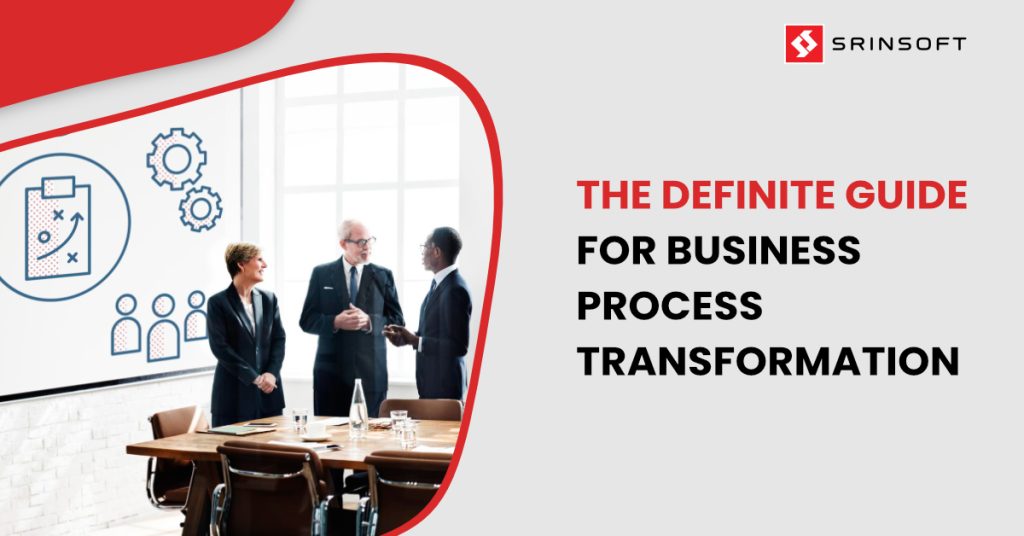
Introduction
Logistics companies always have the need to manage the flow of goods and information efficiently. This is where BPM Implementation plays a crucial role. It enables logistics companies to make their business processes better and automate repetitive tasks with the use of workflow automation – which is an integral part of BPM Implementation. Every step, from order processing to delivery, is made faster and more accurate by managing processes well.
BPM Implementation is the practice of designing, analyzing, and optimizing business processes. For logistics companies, BPM helps in designing optimized workflows, mapping existing processes and automating tasks.
These process management strategies result in improved service delivery and higher customer satisfaction. Not only this, by incorporating BPM Implementation, companies can have better control over supply chains and can also significantly lower operational costs.
In this article, we will delve deeper into various aspects of BPM implementation in a logistics company including the key considerations before implementing BPM and the future trends of BPM in logistics.
Benefits of BPM Implementation in Logistics
Business Process Management is a powerful tool for logistics companies. Here’s how BPM Implementation can transform logistics:
Improved Efficiency
Logistics involves many tasks like order management, inventory management, and warehouse management among others. BPM implementation organizes these tasks and removes unnecessary and redundant steps by creating well-defined workflows that make tasks more efficient.
This ultimately makes operations faster, more accurate, and cost-efficient.
Better Visibility
BPM Implementation integrates advanced tools like RFID scanners, warehouse management systems, and transportation management systems to name a few. These technologies enable companies to track and monitor logistics activities in real time and help stakeholders to see shipment status and inventory levels instantly.
This helps make better decisions and respond quickly to any issues.
Cost Savings
By managing business processes, logistics companies can find and fix inefficient processes as well as automate repetitive tasks like scheduling and route planning. BPM implementation can help optimize delivery routes, manage warehouses, and streamline buying processes.
All these ultimately lower operational costs and improve financial performance as resources will be utilized efficiently.
Improved Customer Experience
Well-managed business processes ensure that shipments are delivered on time and any issues are quickly resolved. This leads to better customer experiences consequently resulting in higher customer satisfaction and loyalty.
Enhanced Compliance and Risk Management
Logistics companies must adhere to various regulations and compliance requirements. BPM implementation provides a way to ensure all these rules are followed by standardizing operations and providing audit trails.
This reduces legal issues, like non-compliance and keeps operations running smoothly.
Flexibility and Adaptability
The logistics industry is very dynamic with frequent changes in demand and routes. BPM Implementation helps companies adapt to these changes easily by providing a framework for continuous process improvement. Hence, companies can grow, adopt new technologies, or follow new market trends smoothly.
Key Things to Consider Before BPM Implementation
BPM implementation process in logistics companies involves several critical steps. Here are some of the important things that companies must consider for implementing BPM Implementation.
Analyze the Current Supply Chain
Companies need to examine their existing supply chain in detail. BPM Implementation provides tools that help map and study current processes to find areas for improvement and inefficiencies. By pinpointing issues, companies can remove redundant activities and improve performance.
Establish Clear Objectives
For the success of BPM Implementation in logistics, it is crucial to define clear, measurable goals related to costs, delivery times, and product availability. BPM Implementation aligns processes with these goals by documenting workflows and identifying key performance indicators (KPIs).
This ensures all actions are aimed at achieving specific, measurable outcomes.
Implement Technology
Choosing and integrating the right technology is an essential part of BPM implementation. Companies should consider incorporating tools like Warehouse Management Systems (WMS), Enterprise Resource Planning (ERP) systems, and product tracking solutions in their processes. BPM Implementation provides a structured way to select, design, and integrate these systems.
BPM tools that can also automate processes can be utilised to enhance efficiency and accuracy in supply chain management.
Collaborate with Suppliers
Working well with suppliers boosts supply chain efficiency. A successful collaboration with suppliers includes negotiating better terms, setting up collaboration agreements, and sharing inventory management practices. By implementing BPM Implementation practices, companies can clearly define roles and use automated workflows to improve communication and coordination with suppliers.
Manage Risks
Logistics companies must be aware of risks like supply chain disruptions, regulatory changes, and price fluctuations. To ensure business continuity, companies need to implement measures to reduce these risks.
BPM Implementation helps identify and document critical points in processes, develop contingency plans, and set preventive measures.
Measure and Track Performance
Setting Key Performance Indicators (KPIs) and tracking return on investment (ROI) is essential for monitoring performance as they help companies make necessary adjustments to meet objectives. It also helps to demonstrate BPM’s effectiveness.
BPM Implemenation provides tools to measure and track performance using KPIs. Another advantage of implementing BPM systems is that they generate dashboards and reports for continuous performance evaluation and identifying areas needing attention.
Future trends in BPM Implementation and Logistics
Business Process Management, like all the other enterprise strategies, will undergo changes and will be heavily influenced technology as we are in a era where technological advancements are never like before. Here are some of the noteworthy trends in BPM that logistics companies must keep an eye on.
Integration of Artificial Intelligence (AI) and Machine Learning (ML) in BPM Implementation
AI and ML are becoming an important part of BPM. AI can analyze large volumes of data which is the building block to make smart and effective decisions. In logistics, AI can predict demand, optimize delivery routes, and automate warehouse tasks.
ML on the other hand learns from past data to continuously improve processes. This feature enables logistics companies to take data-oriented decisions.
Increased Use of Automation and Robotics
Automation will become a necessity for BPM in logistics. Especially in logistics, robotics will take care of repetitive tasks like sorting, packing, and transporting goods in warehouses. Warehouses will attract more AGVs and drones.
Logistics companies can minimize human error while saving on manual labour and time by expanding the role of automation.
Enhanced Real-time Data Analytics through BPM Implementation
Real-time data analytics will be providing instant insights to logistics companies and will become increasingly advanced. It will enable live visibility of shipment tracking, access to inventory status in real time as well as provide performance metrics. Such enhanced analytics will enable logistics companies to respond quickly to disruptions or inefficiencies and ensure a smooth supply chain.
Adoption of the Internet of Things (IoT) for BPM Implementation
IoT devices are transforming BPM. For instance, sensors provide real-time data from various supply chain points. IoT devices can perform a variety of tasks like
- Monitoring the condition of the goods in transit
- Track vehicle location
- Manage inventories
Being connected through IoT devices, companies can have a continuous data stream that enables them to have proactive management and timely interventions.
Cloud-based BPM Implementation Solutions
The use of cloud technology for a BPM solution will make it available everywhere as well provides a scalable and flexible infrastructure. This will in turn improve internal and cross-functional collaboration for logistics companies.
Cloud-based BPM solutions are also easy to integrate with complementary enterprise apps and technologies, which also improve operational efficiency. In addition, cloud solutions offer an efficient and cost-effective alternative for adopting and updating BPM tools without significant upfront investments.
Personalized Customer Experiences
As BPM systems evolve, logistics companies will be able to adapt and deliver more tailored services at a customer level. Using the information on customers’ purchase habits and preferences, it becomes easy to adjust services to better suit the needs of consumers, leading to an increase in customer satisfaction.
This trend comprises tailored delivery, proactive communication and improved customer support.
Conclusion
Logistics companies can greatly benefit from implementing BPM strategies in their operations. BPM provides tools and methods to improve processes as well as helps monitor processes for better control and transparency.
Ultimately, makes the entire supply chain and logistics more efficient. However, to reap full benefit from BPM, companies must work with different departments and stakeholders to ensure efficiency and timely product availability.


